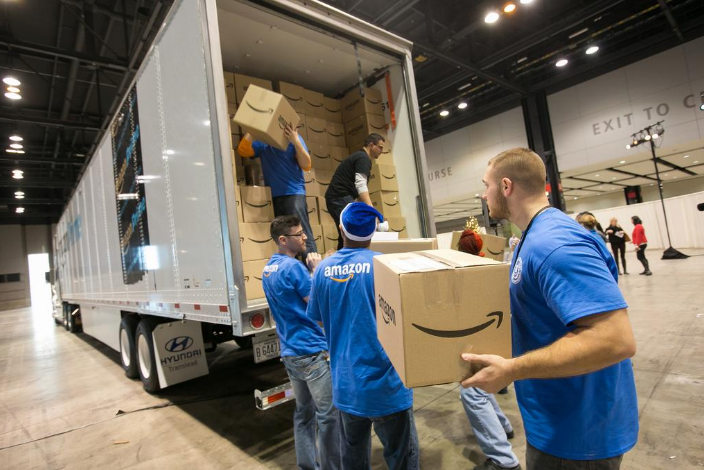|
Via Philadelphia Business Journal The bids are in and the six-week sprint that led up to Amazon HQ2 proposals being submitted by communities from across our region has shined a welcome spotlight on Greater Philadelphia as a business location of choice.
The proposals coming out of Greater Philadelphia last month focused on our region’s enviable assets and advantages — a strong, diverse workforce; an easily accessible international airport; an extensive regional transit network; world-class higher education institutions; a central East Coast location; our livability and affordability. It would be hard to deny that our region has all the fundamentals and then some. Most exciting was how a wide array of local and regional leaders came together and promoted our strengths. At the same time, we — like all major U.S. metros — face complex challenges. Too many people in Greater Philadelphia face impediments to opportunity. Poverty remains high, neighborhoods are struggling to capitalize on regional growth, and many young people do not have the skills needed to move into family-sustaining careers. While there is work to do, the good news is that there’s progress. Much ink has been spilled about our region’s recent renaissance — from the increase in our educated millennial population to the game-changing cellular therapy treatments emerging from our region’s medical research institutions to placement on a new “top places for” list seemingly every week. But the surge of energy, interest, and investment in many of our communities hasn’t happened by accident. It’s driven in no small part by increased collaboration among our regions’ nonprofits, institutions, and business leaders. This represents the other kind of infrastructure beyond transportation networks and utilities that companies like Amazon need in order to thrive — civic infrastructure. Visible examples of this coming together have come in the form of high-profile events and initiatives requiring collaborative leadership to pull off — whether the Pope’s visit, Democratic National Convention, NFL Draft, the Urban Land Institute’s global conference, or our designation as the first World Heritage City in the nation. Even greater proof of our strengthening civic infrastructure has been the growing number of sustained collaborations focused on moving the needle on growth and opportunity in Greater Philadelphia over the long run. The Economy League has helped power many of these civic partnership efforts with other high-capacity nonprofits and institutions. When the Urban Land Institute Philadelphia and the Economy League came together several years ago to drive the creation of a regional infrastructure agenda for Greater Philadelphia, Pennsylvania provided little in the way of dedicated transportation funding. Thanks to the tireless efforts of numerous nonprofit and private sector stakeholders who advocated for the need for dedicated funding, the legislature passed Act 89 in 2013, shoring up our roads, bridges, and transit systems. Last year, the World Trade Center of Greater Philadelphia and the Economy League released the Greater Philadelphia Export Plan – an ambitious effort to spur job growth by helping more area businesses sell their goods and services abroad. The World Trade Center recently received a $1 million federal grant to support implementation of this plan with a broad range of partners by boosting exports among small and medium sized businesses and in priority clusters. Other examples abound — the Pre-K for PA coalition that is expanding access to high-quality early learning across the state, the ImpactPHL collaborative accelerating awareness and growth of businesses addressing social needs in our region, and model talent initiatives like Campus Philly and Graduate! Philadelphia. What we need now is for regional leaders to leverage the energy and creativity generated by the HQ2 bids to accelerate regional growth and tackle our biggest challenges. HQ2 would be a major boon for Greater Philadelphia — but whatever happens, we must continue to work together to push our region forward. When it comes to a wealth of civic organizations building a better region, Philly also delivers. Read the original article here. Josh Sevin ([email protected]) is acting executive director at the Economy League of Greater Philadelphia. Laura Slutsky ([email protected]) is executive director of Urban Land Institute Philadelphia. Linda Conlin ([email protected]) is president of the World Trade Council of Greater Philadelphia. Comments are closed.
|
Categories
All
Archives
July 2023
|



 RSS Feed
RSS Feed